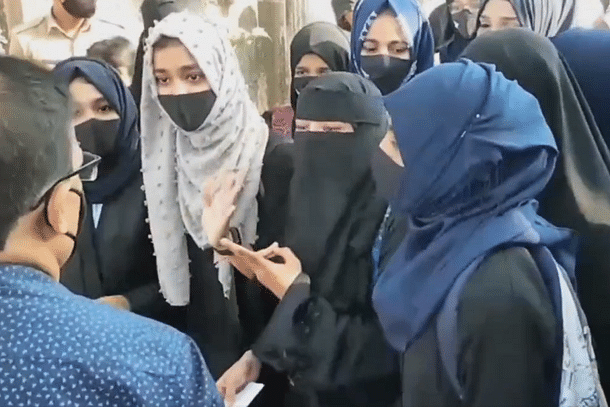
What about turban, cross? Lawyer for Muslim girls asks Karnataka HC

The Karnataka High Court on Wednesday heard arguments from Muslim girls who have challenged restrictions on wearing hijab in classrooms – on the fourth straight day of hearings in the case.
Arguing on behalf of one petitioner, Advocate Ravi Varma Kumar asked the judges why the hijab was being singled out when there were “hundreds of religious symbols, from dupattas, bangles, turbans, crosses and bindis” worn by people every day.
“I am only showing the vast diversity of religious symbols in all sections of the society. Why is the government picking on hijab alone and making this hostile discrimination? Bangles are worn? Are they not religious symbols? Why are you picking on these poor Muslim girls?” he said.
“This is only because of her religion that the petitioner is being sent out of the classroom. A bindi-wearing girl is not sent out. A bangle-wearing girl is not. A Christian wearing cross is not touched. Why only these girls? This is a violation of Article 15 of the Constitution,” Kumar said.
“Ghoongats are permitted. Bangles are permitted. Why only this? Why not the turban of a Sikh, the cross of the Christians?” he said.
“No other religious symbol is considered… Why only hijab? Is it not because of their religion? Discrimination against Muslim girls is purely on the basis of religion and hence a hostile discrimination,” Kumar argued.
Protesting instances where students were punished or removed from class for wearing the hijab, even on Wednesday, the lawyer said, “We are not permitted. We are not heard but punished straight away. Can it be more draconian? Can they be called teachers?”
“It is full of prejudice because of the religion. No notice, straight away sent out of the classroom, by persons without authority,” he said.
“Judicial note is to be taken that Muslim girls are least represented in classrooms. If they are shut out on this pretext, it will be very draconian,” Kumar said.
The arguments in the case come amid tensions in Karnataka where late last year, students were prevented from wearing the Muslim headscarf, sparking protests and counter demonstrations involving saffron scarves that have since spread to other states.


